The unique city of Bologna, located in the Northern part of Italy, has an incredibly rich history and culture. You may not have heard so much about it, but it has a great deal to offer.
Wondering whether living in Bologna is for you? Read on to find out.
Secure Peace of Mind with Best-Value International Health Coverage
International Citizens Insurance provide free, no-obligation quotes from the leading international health insurance providers with plans tailored to meet your needs. Trusted by thousands of expats worldwide.
Bologna's highlights
Yes, Bologna is a very nice and charming place to live in for numerous reasons.
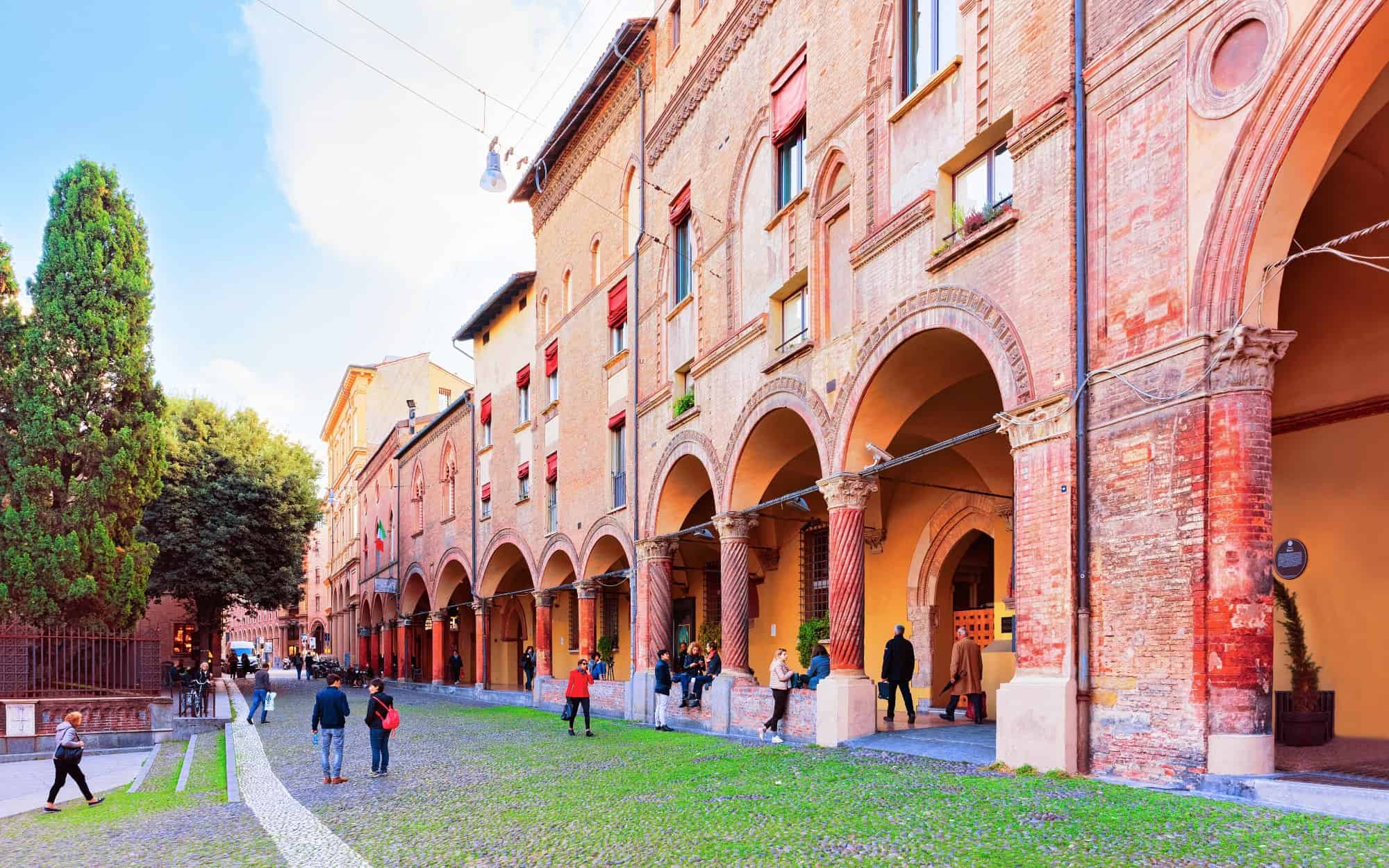
Even though it has many tourist attractions, such as its famous Due Torri, Bologna is less touristy compared to other cities in Italy, such as Rome or Florence, and the authentic Italian city vibe is still very present.
There are still a lot of small boutiques, shops, and restaurants that have been passed down over generations which are often filled with locals and not tourists.
The city’s charm and culture have, of course, attracted more and more people over the years but not heaps.
The city can be appreciated by any age group really. The universities make it attractive to young people, but that is not the only demographic range there. The countryside around it can be great for afternoon walks, and so is the city center, something especially attractive to retirees.
The cost of living
Bologna, in comparison to Milan, for example, is a cheaper city to live in.
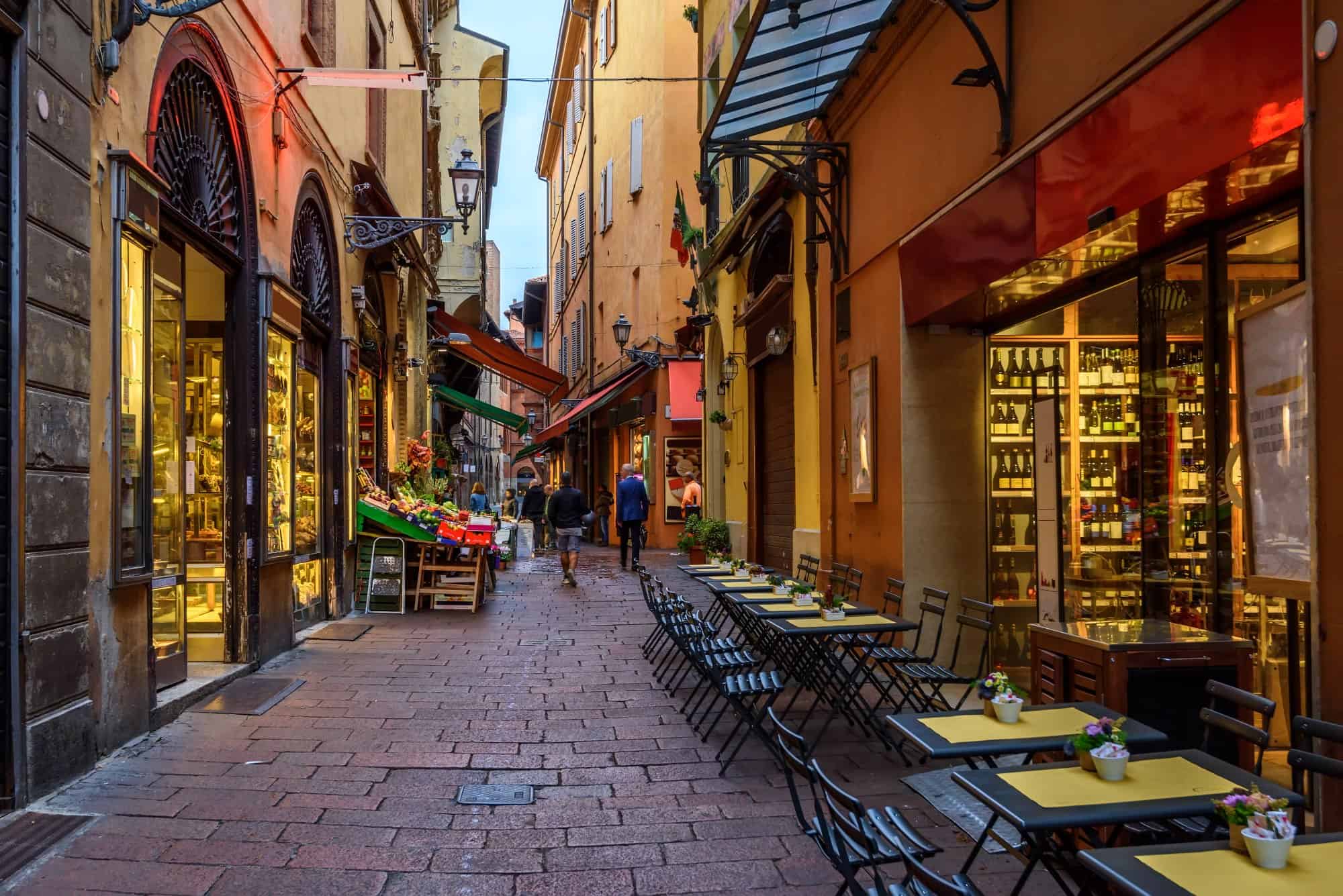
The average rent for a one-bedroom apartment in the city center is around €800 whilst a 3-bedroom apartment can run you up anywhere from €1000 to €1700 per month.
Rent in the outskirts is generally speaking a bit cheaper.
There are also, of course, many properties for sale in the city. The average price per square meter is around €4000 in the center and €2500 outside of the center.
To live comfortably in Bologna, a single person needs around €800 per month, rent excluded.
Utilities cost around €180-200 a month and groceries around €250.
Restaurants are pretty affordable, and so are caffés and bars. There are many inexpensive restaurants that are frequented by the locals where a normal meal will cost around €15 per person.
Remember that a good way to judge a restaurant is by the ratio of locals to tourists, so when picking one, remember to listen closely for any Italian.
Expats in Bologna
The universities in Bologna make it a relatively international city. Over the years, more and more expats and foreigners have moved to Bologna as the city has become increasingly known.
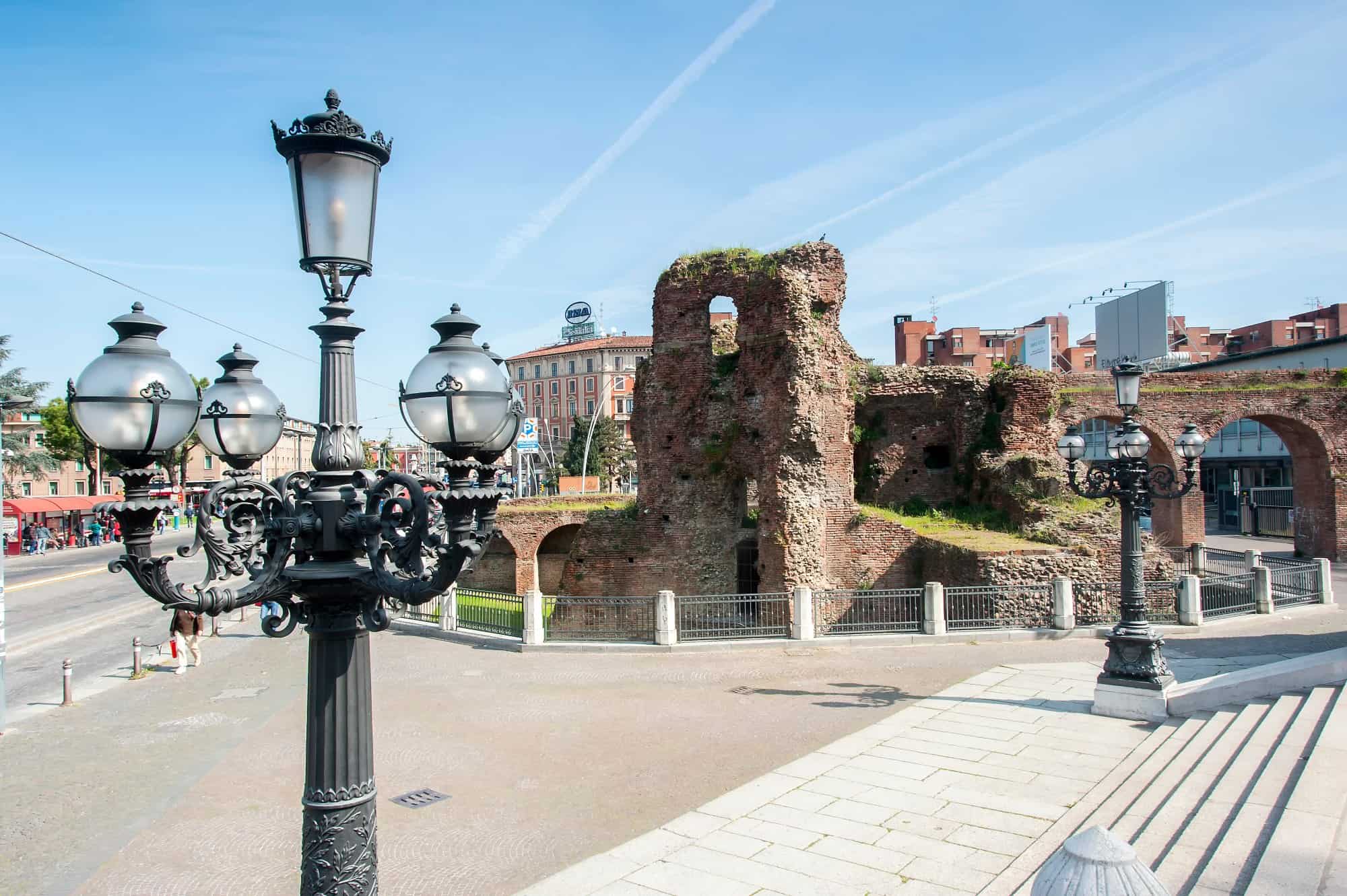
The locals are very nice and welcoming, and bad experiences are rare. It is easy to meet other expats or foreigners if you keep an eye out.
Restaurants and pubs that serve British or American food are usually good places to go if you want to meet non-locals.
Nevertheless, the people in the city are very inviting and overall great. You will find friends, that’s for sure.
The pros of living in Bologna
1. Great geographical position
It is in a great geographical position as both Florence and Milan are less than an hour by train, whilst Venice is just a mere 1 hour and a half.
It is in great proximity to many famous Italian cities, so it is perfect for people who love day or weekend trips. It is also close to the sea as the coast is also a bare hour away.
2. The food
I’m sure you have all eaten or heard of Spaghetti Bolognese, and unlike French fries, which come from Belgium, the famous dish does originate here.
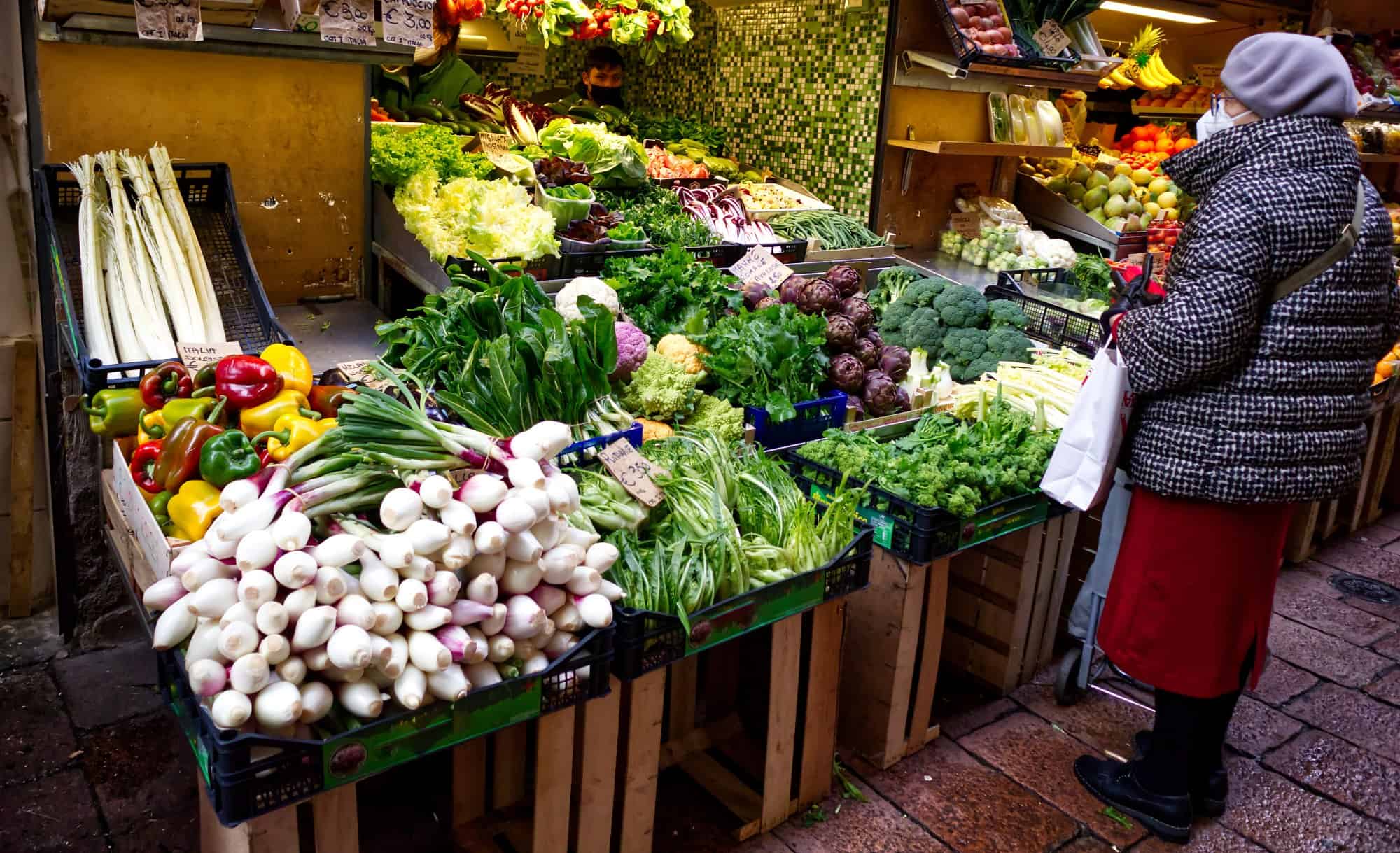
However, don’t be surprised if you don’t find Spaghetti Bolognese on the menu. Here, it has a different name: Spaghetti al ragù.
The ragù sauce is not only used for spaghetti but also for lasagna and tortellini. Almost every restaurant will serve this, and the pasta is also almost always homemade. The food here has been called one of the best in the country.
3. Very walkable
The center of the city is not very large, which makes it very walkable. It has a round shape to it, with medieval arches marking the entrances and exits.
Almost all of the historical sites are located here, and they are all pretty close to each other.
It is possible to walk from two arches that are across from each other, so basically, the ‘diameter’ of the city is around 30 minutes, 35 if you stop for ice cream—something I definitely recommend.
4. The heart of the city is closed to cars on weekends
Remaining on the topic of the city’s center, the main streets are completely closed on Saturdays and on Sundays to cars and vehicles. Instead, they are open to pedestrians, facilitating movement and reducing pollution.
Instead of cars and buses, the streets are filled with street artists and musicians who make taking a weekend walk really enjoyable.
Just remember that this is only on the weekends and not on the weekdays, so keep in mind to stay clear of the road and especially of the buses and their drivers on weekdays.
The cons of living in Bologna
1. Italian bureaucracy
I’m sure that you are aware that bureaucracy, in general, is no walk in the park, and sadly Italian bureaucracy is no exception.
If you don’t have an EU passport, getting Italian residency can be a long process. However, it is doable, and you only have to spare a morning every couple of months in order to obtain it.
Another thing expats get stuck with is Italian taxes; they are complicated and best dealt with by professionals.
If you’re moving because of work, don’t be afraid to ask your employer for help or anything you might need.
2. A lot of students
As mentioned before, universities are a big part of the city, and for some, there just might be too many students around. But, in all honesty, they are very nice and usually stick to the university district.
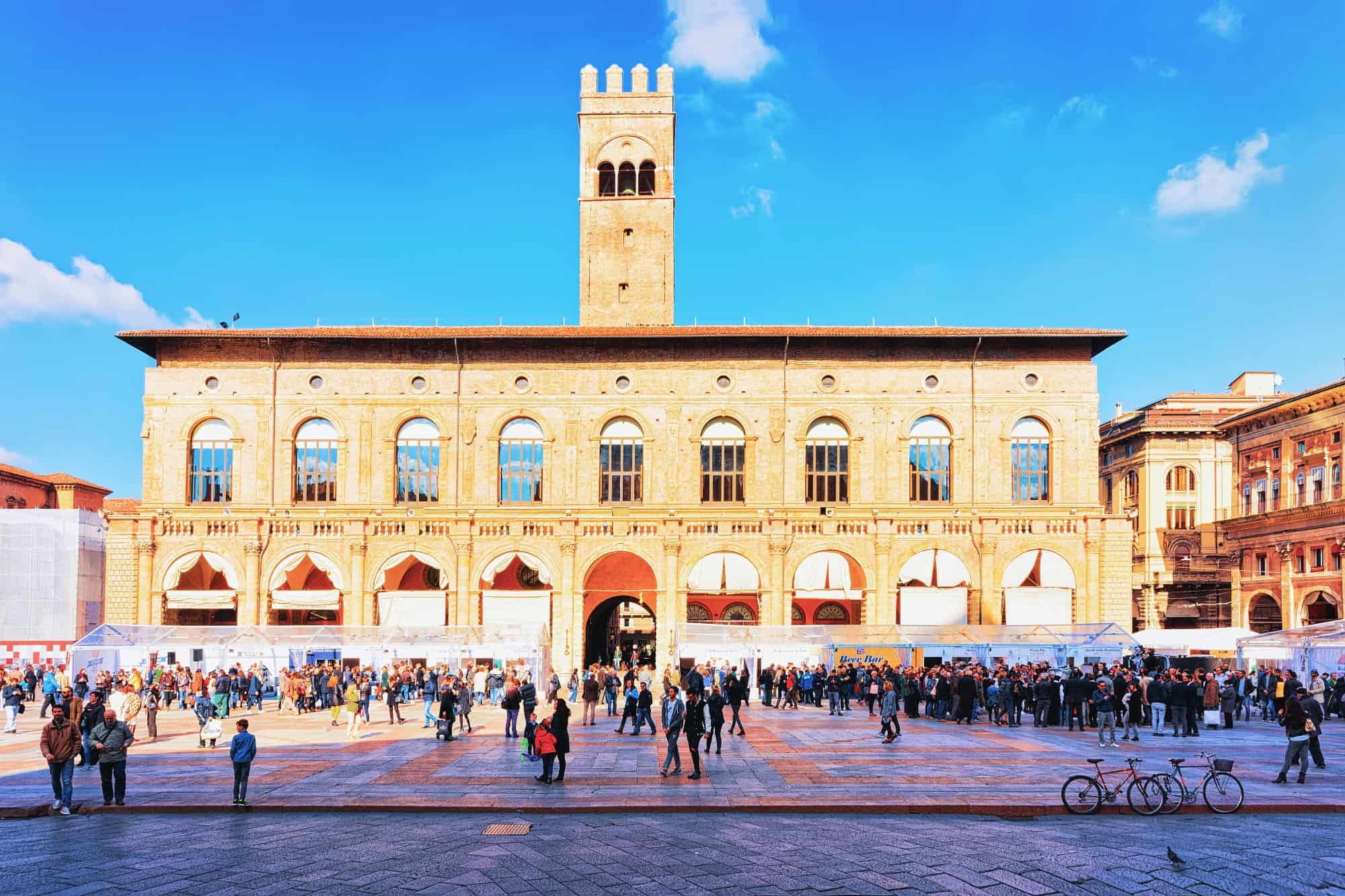
Don’t mistake Bologna for just a university city. However, it may not be your best option if you are looking for a more quiet city, as it does have an active social scene.
3. Parking
The city, which has been around since before the Roman Empire, has a lot of relatively narrow streets. This results in the city having quite a big parking problem as there is a lack of space.
Almost no apartments in the city center come with parking. Permanently parking your car on the streets is not an option: there is often no space, and it can be very expensive.
The best areas to live in Bologna
Bologna is not that big of a city. It only has a population of just under 400,000. This means that there aren’t clear distinctions between neighborhoods.
Luckily, no part of the city and its outskirts can be considered like the Bronx, but there are some parts of town that have a better reputation than others.
If you are looking in the center, some of the best areas to live in are around Via Farini, Via Castiglione, and Piazza Maggiore, but of course, any location in the Centro Storico (historic center) is great.
The part of town that doesn’t have the best reputation is the University district which is in the North-East part of the city. However, it is safe to walk around during the day and even at night if you don’t go to secluded places.
The southbound part, which is often called the hills (Colli Bolognesi), is very nice and has beautiful views and landscapes. It is possible to go on long walks and picnics.
The transportation is also good so getting around and back into the center of town is not a problem.
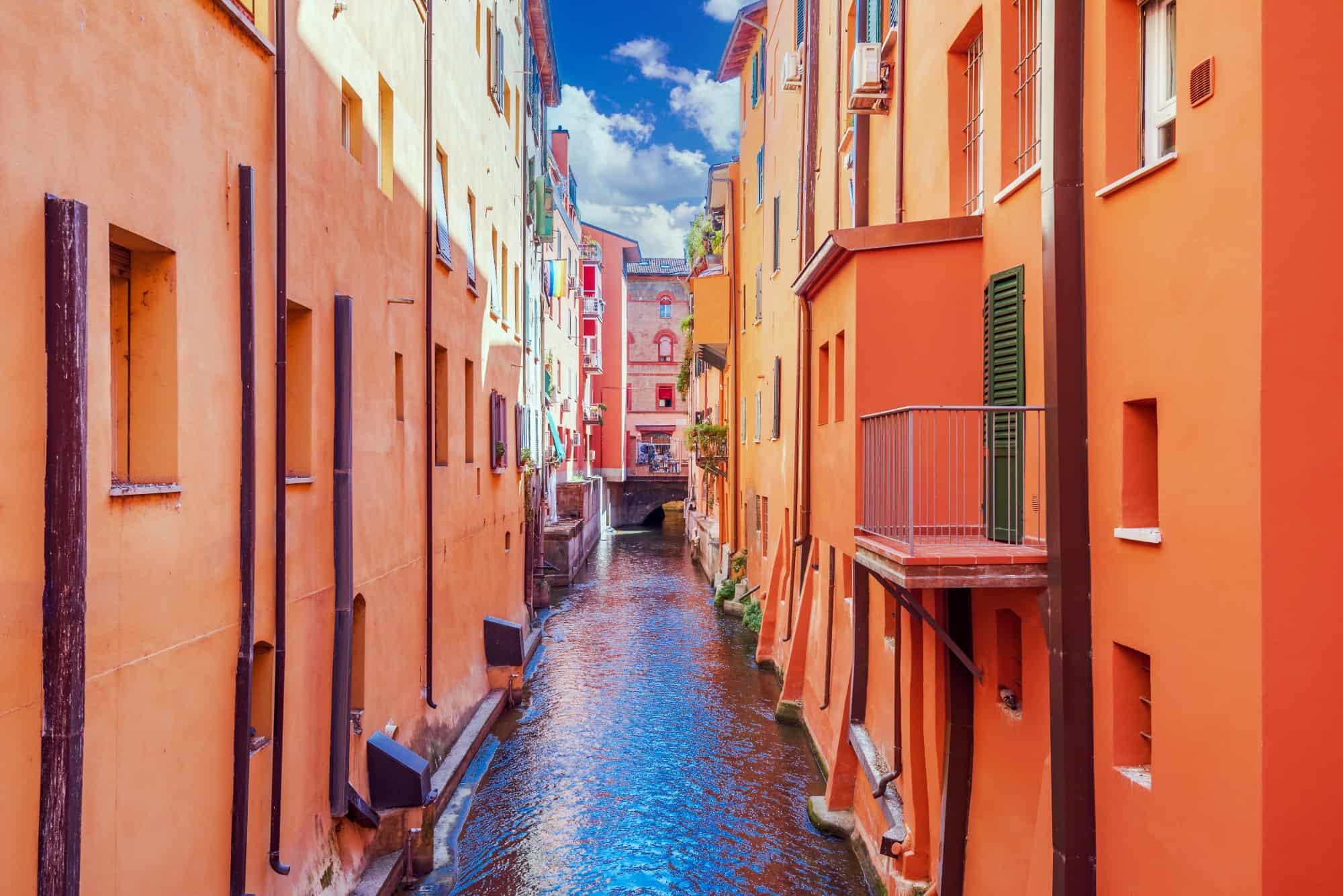
There were some areas that had a bad reputation, such as the northbound part, Pilastro for example, but they are mostly fine now as a lot of them have been totally rebuilt and modernized.
Tips on settling down in Bologna
1. Get your tax code as soon as you can
Before moving to Italy in general, it is important to make sure that you will get your codice fiscale as soon as possible after your arrival as you will often need it. For my American readers, it is important that I mention that it is not as private as your social security number, so don’t be freaked out if various places ask for it.
2. Learn Italian
Picking up some Italian before moving will give you an advantage. Even though a big part of the younger generation speaks a decent amount of English, some of the more senior residents might not.
Overall, it’s great to pick up a few phrases here and there, and most importantly, don’t be afraid to make mistakes. It can be a great conversation starter and lead to you making new friends.
3. Buy a driving pass
The city also has very strict rules about where and where not you are allowed to drive. It is required to buy a pass, which costs €6 for 24 hours if you want to drive in certain areas. If you live in an area where this rule applies, you get a permanent free pass, of course.
4. Walk in any weather
No matter whether it's sunny or rainy, you can enjoy the city on foot. One of the city's greatest assets is the sort of ‘roofs’ that cover almost all of the major sidewalks. It is quite handy on a rare rainy day but also in general as they shade from the bright sun in the summer.
Not to mention how much it could save you on parking.
Final thoughts on living in Bologna
Living in Bologna is just a great experience overall. You will be immersed in the local culture and experience an authentic Italian city that is full of history and culture. There is a big social life for people of all ages as the city proposes many activities from which you can pick and choose.
Whether you like partying, going to bars, attending concerts and the opera, or even long walks, - you will find something to do here.
The city is also great if you are a foodie, as said before. Some restaurants have beautiful open kitchens, which let you see your food being made.
So do it, take the leap of faith, and move to Bologna. You won’t regret it!
Other popular locations in Italy:
- The 13 Best Places To Live In Milan, Italy
- Living In Verona, Italy: What To Ask Before You Move
- Living In Como, Italy: Essential Expat Guide
- Living In Rome: The Pros & Cons You Must Know
You might find useful:
Helpful external links
- Find out about events and entertainment in Bologna on Bologna Welcome
Secure Peace of Mind with Best-Value International Health Coverage
International Citizens Insurance provide free, no-obligation quotes from the leading international health insurance providers with plans tailored to meet your needs. Trusted by thousands of expats worldwide.




